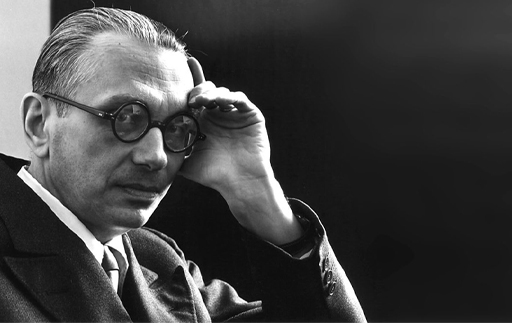6 Gödel’s incompleteness theorems
Language contains many paradoxes and contradictions. But when it comes to numbers, we expect a statement to be either true or false. Hilbert believed mathematics could reach all the answers within one overarching axiomatic system. Kurt Gödel didn’t.
Gödel was a student of mathematics in Vienna in the 1920s, with an interest in mathematical logic and philosophy. He had been gaining international stature when he informally introduced his incompleteness theorems at another Königsberg event in 1930. His subsequent work in this area went on to be enormously influential.
Gödel disputed the idea that an axiomatic system could produce mathematical proof for everything – that a formalised mathematical system could ever be ‘complete’. Remember that an ‘axiomatic’ system is one that’s described by a set of pre-determined truths held as self-evident, from which everything else is logically derived.
Gödel’s work was extremely complex and cannot be explained in detail here, but he essentially produced a system of code numbers for representing mathematical axioms, and statements about those axioms. Whether a statement is true or false was now translated into solving numerical equations.
Gödel’s ‘incompleteness theorems’ highlight the limitations of mathematics, and indeed of any axiomatic system. They show that within the system, there will be true statements which we will never be able to prove are true. And impressively, it’s a mathematical proof that demonstrates this mathematical boundary.
In short, his first incompleteness theorem shows that no consistent system of axioms whose theorems can be listed by an effective procedure, such as an algorithm, can prove all true statements about the arithmetic of natural numbers. The second incompleteness theorem shows that such a system cannot demonstrate its own consistency.
With these theorems, Gödel showed that it’s impossible to create a set of axioms that explains everything in maths. That, in a manner of speaking, our knowledge will never be complete – it’s like a poorly designed jigsaw puzzle, where we might have all the pieces yet they don’t quite fit together.

